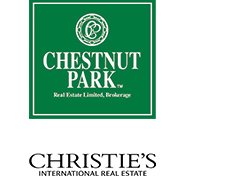Market Report
Toronto Real Estate Market Update – December 2015
It’s almost anticlimactic to write about the Toronto residential resale market for December and year end 2015. The anticipation of a record breaking year had evaporated by September. Barring some economic catastrophe, by the early fall it was becoming apparent that the long standing record of 93,193 sales achieved in 2007 was going to fall this year and it did, dramatically.

By year-end 101,299 properties were sold by Toronto and area realtors, and that does not include the thousands of new construction properties that were sold over the same period. The sales achieved in 2015 exceeded the 2007 record by almost 10 percent.
That was not the only new record that was established in 2015. The average sale price for 2015 came in at $622,217, the highest annual sale price in history. It shattered the previous high of $566,624 achieved in 2014. This also represents an increase of almost 10 percent.
The rising average sale price for properties now means that it costs more than $1 Million to buy a detached house in Toronto. In December that number came in at $1,039,638. It also means that a large segment of Toronto’s resale market is now composed of properties with sale prices that exceed $1 Million. In 2015 10,867 properties were reported sold in this category, almost 11 percent of the entire market. In 2014 only 7,364 properties above this price point sold. Similarly $ 2 Million plus sales also increased dramatically in 2015. There were 1668 properties sold in this price point, a 43 percent increase over the 1,168 sold in 2014.
A concern throughout 2015, and one that will impact the Toronto and area resale market at least in early 2016, is the supply of inventory. At year-end there were only 1.8 months of inventory in the greater Toronto area. In 2014 there were 2.2 months, also low.
In the City of Toronto there were 2.2 months of inventory at year end. This compares with 2.4 months of inventory at the end of 2014. The larger supply in the City of Toronto is due to the high number of condominium apartments available for sale.
Condominium apartment sales were also a bright spot in 2015. In December 30 percent of all properties reported sold in the greater Toronto area were condominium apartments, almost 15 percent more sales than for the same period in 2014. On average that ratio of sales, between condominium apartments and freehold properties, was achieved every month during 2015. That means that more than 30,000 of the 101,299 reported sales for 2015 were condominium apartments, the bulk of these sales, approximately 60 percent, taking place in the City of Toronto. In the City of Toronto the average sale price for condominium apartments came in at just over $400,000, a long way from the cost of detached and semi-detached homes. Condominium apartments have become the entryway for first time buyers into Toronto’s record breaking market.
Although 2015 ended on a market high, a number of negative economic changes began in December and cloud the horizon as we attempt to peer into 2016. In December the Toronto stock market dropped precipitously, a drop that has continued into the first week of January. The Bank of Canada has reduced its 2016 forecast to less than 2 percent growth, probably closer to 1.5 percent. The west continues to suffer as a result of declining oil prices. As of the preparation of this report oil prices were hovering at $30 a barrel, the lowest they have been in more than 10 years. On the international scene China continues to struggle, with no sign of a change in it stagnating economy. When the Chinese economy slows, commodity oriented countries such as Canada are immediately impacted.
The falling Canadian dollar is both a positive and negative factor in the economy. It clearly makes Canada’s exports more attractive, but conversely it makes buying imported goods more expensive, making life more expensive for Canadians. It does mean that we will not see an increase in the bank rate anytime soon, which in turn means a continuation of historically low mortgage rates. It may be that these low rates, combined with Toronto’s attraction for new immigrants and those migrating from less prosperous areas of Canada, or what has been called the “Switzerland appeal,” may once again power the Toronto residential resale market to another record year .Given the number of properties that sold in 2015, a more prudent analysis would suggest that the Toronto and area market will come off the highs of 2015 and produce sales of closer to 95,000 properties in 2016, which would still make 2016 the second best year on record.




